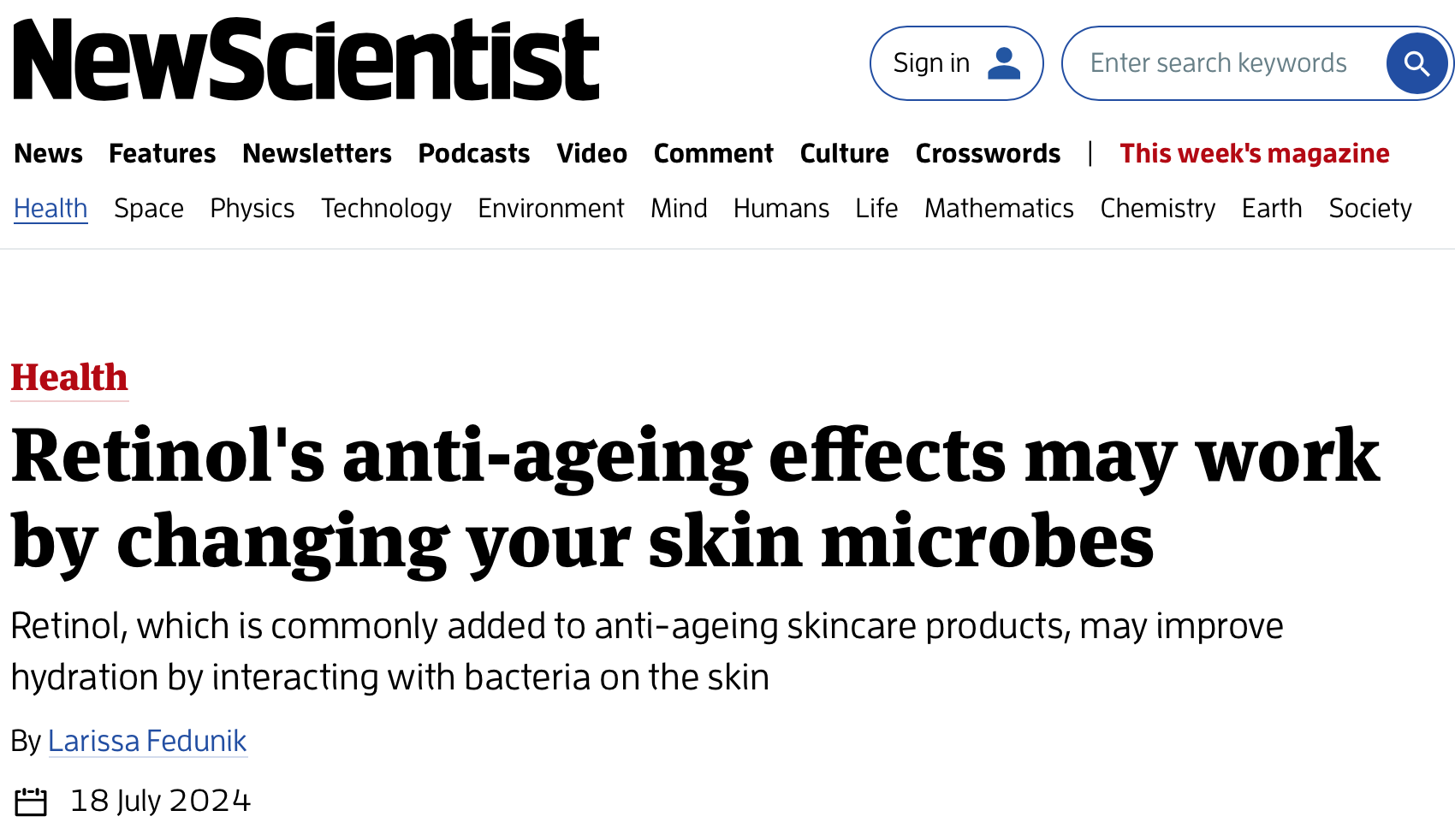18 July 2024, New Scientist reported our team’s research on Retinol's anti-ageing.
Postdoctor Cheng jingmin and other students, including people at the skincare company HBN - recruited nine Chinese women aged between 22 and 38 years old.
The team thinks two types of microbes - Corynebacterium kefirresidentii and Sericytochromatia species - are involved in the first step of the reaction that converts retinol into retinoic acid. This is based on the high rate at which these bacteria produced metabolites, products of reactions within cells, that are involved in the conversion.
In another part of the experiment, the researchers analysed the swabs for metabolites of a low molecular weight involved in skin cell reactions, which can be markers for healthy skin. The lotion was linked to an increase in metabolites associated with the production of vitamin Bl, which has been linked to skin cell repair and maintaining a healthy barrier to retain moisture.
There is a significant need in the research community to understand what skin microbiota are doing, which this study has addressed by assessing skin metabolites," says Holly Wilkinson at the University of Hull in the UK. She says that the study should be extended to include older people and those of different ethnicities to assess retinol's effects more broadly.
Original link: https://www.newscientist.com/article/2439766-retinols-anti-ageing-effects-may-work-by-changing-your-skin-microbes/
